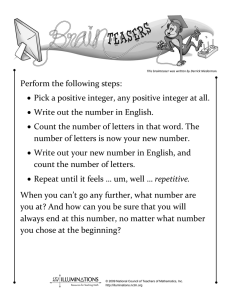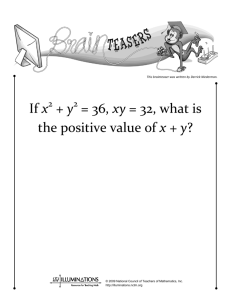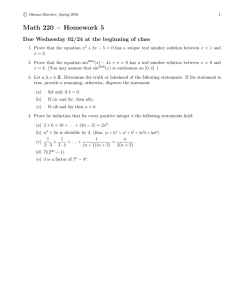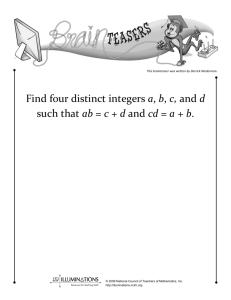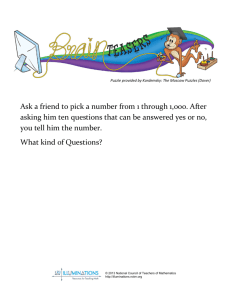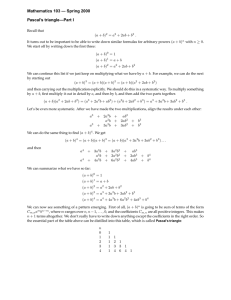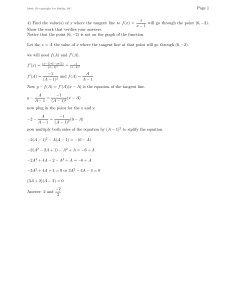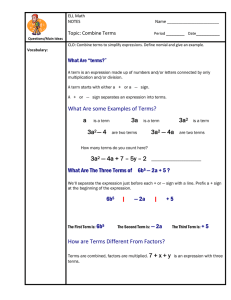If the sum of three numbers equals zero, and the sum
advertisement
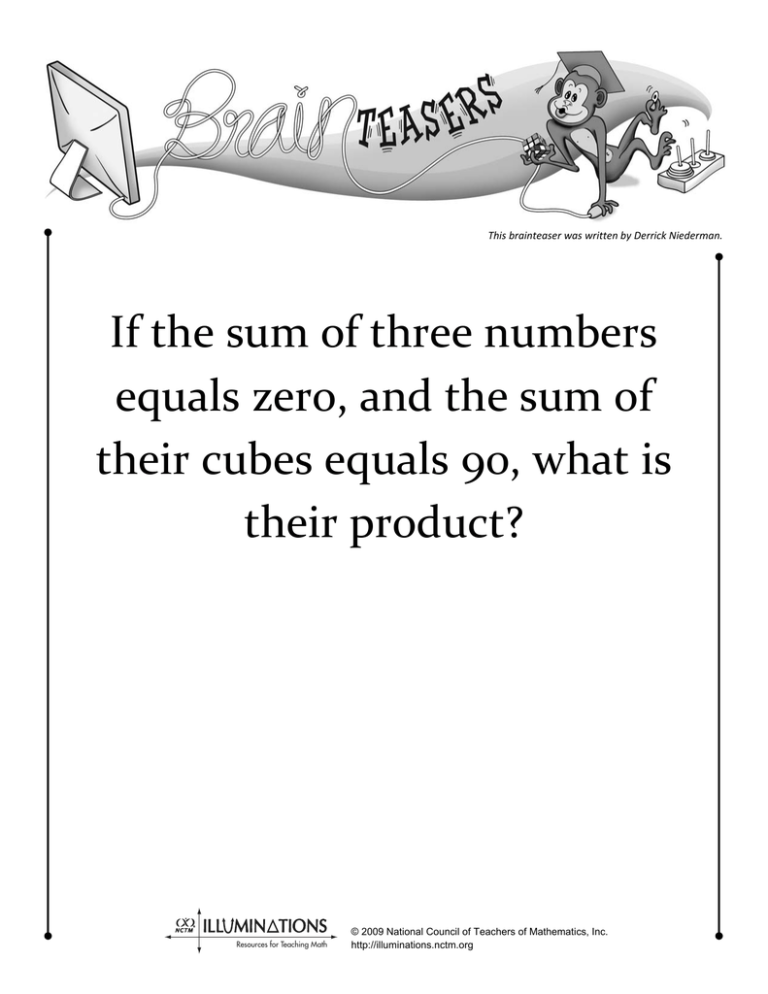
This brainteaser was written by Derrick Niederman. If the sum of three numbers equals zero, and the sum of their cubes equals 90, what is their product? Resources for Teaching Math © 2009 National Council of Teachers of Mathematics, Inc. http://illuminations.nctm.org Solution: 30. There’s no reason to believe that this problem will have an integer solution, but there is good reason to look for one: since the sum of the numbers is zero, at least one of them must be negative; and, since the sum of the cubes is 90 and one of them is negative, then they can’t be very big. A little playing around leads to two sets of numbers that satisfy the criteria: • 6 + (‐5) + (‐1) = 0 and 63 + (‐5)3 + (‐1)3 = 90 • 5 + (‐2) + (‐3) = 0 and 53 + (‐2)3 + (‐3)3 = 90 Both sets of numbers have the same product: (6)(‐5)(‐1) = 30, and (5)(‐2)(‐3) = 30. This would seem to imply that all sets that satisfy the criteria have a product of 30. Indeed, that is the case, and there are many other sets of numbers containing no integers that also satisfy the criteria. One such set is 5.0581, ‐3.2109, and ‐1.8472. A more general solution can be found using algebra. Since the sum of the numbers is 0, then a + b + c = 0. But said another way, a + b = ‐c. Cubing both sides of that equation leads to the following: ( a + b )3 = ( − c )3 a3 + 3a2 b + 3ab2 + b3 = −c 3 3a2 b + 3ab2 = −a3 − b3 − c 3 3a2 b + 3ab2 = −90 ab ( a + b ) = −30 But since a + b = ‐c, then this final result becomes abc = 30, proving that the product of the three numbers must be 30. Resources for Teaching Math © 2009 National Council of Teachers of Mathematics, Inc. http://illuminations.nctm.org
